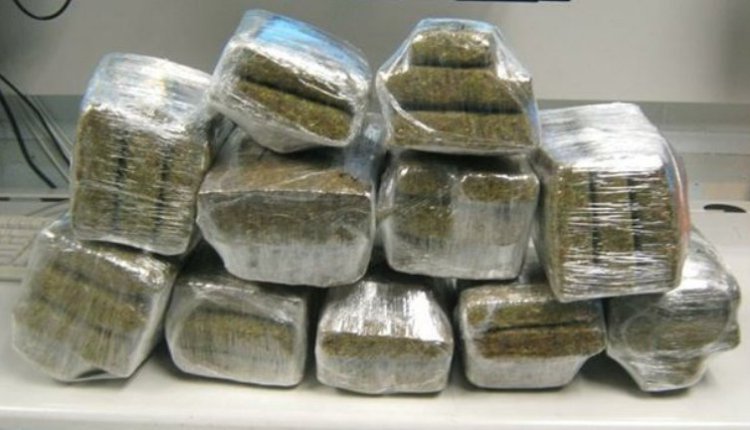Over the years debates on drug fueling insecurity became tempting to decipher, so I became inquisitive to per blink of an eye disrespect on human lives in Nigeria. As it’s worsening, I was enthused to have a chat on the psychology with a psychiatry expert of Jos University Teaching Hospital (JUTH), Prof. Moses David Audu – who told me government is getting it wrong on the drug fight “no amount of shootings and military hardware can end criminals, in fact no amount of aggressiveness can win the war.”
And truly, there are prevailing evidences through our home windows (for security consciousness) that perpetrators have no age limit – even innocence of children (teenagers) is lost to crime. Very saddening! And the aftermath always sung, unknown gunmen, unidentified terrorist, yet more inhumane terror on our lives. Wait, is Prof. a God?
Earlier this year, United Nations Office on drugs and Crime (UNODC)’s Country Representative, Mr. Oliver Stolpe disclosed during the official launch of UNDOC Strategic Vision for Nigeria 2030 that the insecurity and crime in the country could be traced to drug use prevalence, especially among youth. But the plight of inheriting such culture considering the stats that youth of Africa is estimated to reach 258 million by the year 2025 and corroborated by the 2018 National Drug Use Survey which revealed that around 14.3 million Nigerians abuse drugs and three million of them suffering from drug use disorder, is what called for review on drug fight.
Evidence from the Punch Newspaper has it that the story of lynched sound engineer in Lekki on May 12, over a scuffle with Okada man was registered under the influence of drug. Similarly Deborah’s blasphemy case, in the mob were invited thugs and bad guys—what do they do? – drugs! Away from street cases, another is intimacy being betrayed on drug; the recent prominent murder case in Nigeria involving an undergraduate student and the CEO of a television station, which the former admitted taking drugs and alcohol with deceased before the incident.
These drug influenced violence, from personal, communal clashes and overwhelming state unrest are routine in Nigeria—this is why the state is unsecured. In medical law, it’s said diagnosis is half way cure.
However, futher in our chat, Prof. Audu expatiated on WHO projection of Third World possibly 40% increase on drug abuse “you‘ll be surprise, when you visit our jungles, where you find these cult guys and other gangs (youth). Everywhere is just ruminant of smokes, injections, even cocaine and other local stuffs,” surely, after getting high they immediately go back to communities—and do the maths of their conduct – it’s just like a car batteries’ theft in my neighbourhood which left Baba Alhaji stranded “I had to use my children’s school fees to buy a new car battery, at least I can’t be sitting idle at home, I am a commercial motorist. But the saddening part is I owed two terms before now. I was supposed to pay off the debt that day.” Truly, cars are parked at owner’s risk. But should it be made recollected in such manner? Now, every mouth in my neighborhood is saying ‘yara masu shaye- shaye ne (these drug addicts), are we safe with them?’ Unfortunately, that was theft – which might graduate to bigger crimes. That’s drug for you.
To confirm saying that drug user are temperamental, restless and anxious, I visited Lamboo (riverside) in neighbourhood on several occasions, I saw nothing but junkies – no one wearing teen’s face as per their age, morale music everywhere and celebration mood. So, I concur to Prof’s, it’s social interaction that fuel them “sometime, emotions like neglect, depression, also it occurs to be pleasure, curiosity for others.”
However, since Nigeria government couldn’t afford to use all its assets to build rehabs and psychiatry, it strengthened the agency for drugs, but Prof. disagreed to its methods as only ‘prosecution and persecution’ through arrest and other penalties. Rather, he instead called for multiplicity approaches to engage and make addicts recuperate and reintegrated “using drugs is not cool, let’s make being healthy the new high – determine folks interest in drugs, then you solve them through good engagements like exercise, eating fruits, listening to music, being athlete etc.
“Paying more attention to the emotional needs at school and the family level. And building life skills in people, so also, priority is tent with a healthy environment – drug vendors having close proximity to our schools is dangerous, culture allowing drug use – alcohol etc. without regulation is a huge mistake. Lastly, stakeholders need to do some critical thinking to design these approaches.”
And, a drug user, Abdulrahman Agunbiade who started smoking due to neglect, agreed to stop smoking if he has another ‘healthy obsession’ as he preferred to call it “but I still need good attention for the healing, I’m naturally aggressive.”
But Prof. Audu insisted that multiplicity measures is the only answer, if not the military forces will seemed overwhelming just as now “no amount of shooting can end criminals when the environment is not rid of drugs presence.”
My effort in this article is to reveal that Nigeria might be breeding armies of criminals unawared with the age group of drug addicts shifting on teenagers—and prevailing communal crimes, our homes’ windows might be the safest place soonest. And it’s not Prof being God but the misshaped fight on drugs.
–
400 level Mass Communication student, Bayero University Kano



